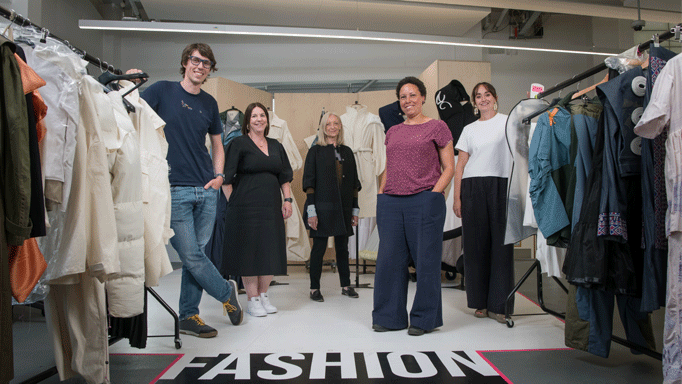The project, entitled IMPACT+: Environmental Index Measures Promoting Assessment and Circular Transparency in Fashion, will address the issue by bringing together a network of academic experts, manufacturers, consumers, and major fashion brands including Barbour, Montane, and ASOS.
The project, led by Northumbria University will work alongside Loughborough University and Kings College London, bringing together a variety of expertise, including water, air and soil pollution, forensic science, design, and big data. Tom’s current research is investigating the prevalence and impacts of natural textile fibres (e.g. cotton and wool) relative to their plastic analogues (e.g. polyester and nylon) in contemporary freshwater environments and aquatic sediment records.
Over the next two years the group will work together to gain a better understanding of how the environmental impact of fashion garments is currently measured, sharing their expertise to get a true picture of the scale of the problem.
In recent years there has been increasing recognition of the global environmental impact of the textile industry – however, the true scale of the problem is still not fully understood. The lack of a collective approach to measuring and assessing the sustainability of the fashion industry means many consumers are still unaware of the impact the clothes they buy have on the health of our planet. The UK fashion and textiles industry contributes almost £20 billion to the economy and employs 500,000 people in the country. However, the fashion industry is also responsible for 10% of annual global carbon emissions.
The project has been awarded almost £2m of funding through a joint programme between the Arts and Humanities Research Council (AHRC), Natural Environment Research Council (NERC), and the UK’s national innovation agency Innovate UK. The aim of the programme is to fulfil UK Research and Innovation’s (UKRI) ambition to transform the circular fashion and textiles sector. A core component of this mission is to fund Networks that brings together different communities to identify, prioritise and develop emerging research and knowledge exchange challenges.
Speaking about the project, Dr Tom Stanton said: “The impact the fashion industry has on the environments goes far beyond just to the carbon footprint of the garment. Microfibres from clothes are shed which goes on to affect the health of our oceans, rivers, soil and air quality, and fibre production has considerable land, water, and chemical demands. By collaborating with academic and industry experts we hope to combine our knowledge to drive forward changes in how the fashion industry measures its impact on the environment.”
The project is one of just three to be funded through UKRI’s circular fashion and textile programme: NetworkPlus.
